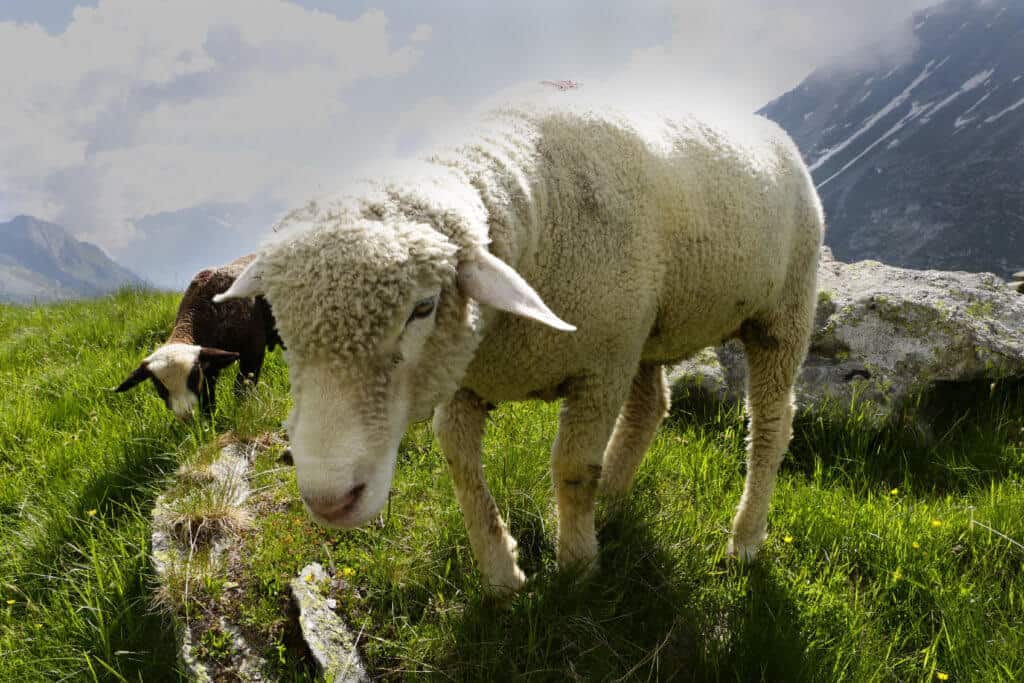Gareth Clubb, director of WWF Cymru, the Welsh arm of the environmental organization WWF, has written a blog post in the Welsh language under his social media name Naturiaethwr to warn the region’s farmers of the reality of the Welsh livestock industry: rising costs from energy to veterinary expenses, climate change, and declining consumer demand for animal meat.
Clubb argues that people in the UK are reducing their meat and dairy consumption for health, ethical, and environmental reasons. This change in eating patterns threatens the country’s animal farming industry, particularly in Wales, where more than 90% of the land is dedicated to sheep and cattle farming.
He highlights that 58% of the population has taken steps to reduce or stop eating meat, although some people are consuming meat again. In Wales alone, 29% of the population has stopped eating meat or consumes less. Reasons for this decision include health concerns (41-62%), followed by ethical reasons (22-17%), and then climate change (18-10%). Cost issues represent only 13 to 6%, according to Clubb.
Key points
A few of the most pertinent key highlights from his essay, translated into English and quoted directly, are as follows.
- “Eating patterns are gradually changing away from meat and towards other high-protein foods produced using plants or lab-grown meats; 58% of the population has taken steps to reduce or stop eating meat, although some have reverted to eating meat.”
- “In Wales, 29% of the population either avoid eating meat or eat less of it. Many factors are driving this change in attitude, including concerns for animal welfare, as well as personal and environmental health.”
- “Sales of plant-based dairy products were 7% of the dairy market in the EU in 2022, with a growth of 24% over the two years to 2022. And for those who claim that ‘meat-like’ products are not acceptable to most consumers, a taste test where 67% of customers preferred fake chicken to fake meat shows that.”
- “All of this is clearly a challenge for the livestock industry in terms of the domestic market; can assume that this pattern is very similar in the larger market in England.”
- “And there are environmental costs, particularly involving intensive farming, including river pollution, air pollution, greenhouse gases, resistance to antibiotics, as well as the impact on animal welfare.”
- “A real threat to the viability of the livestock sector in Wales is technologies that will produce ‘meat-like’ foods for a much cheaper price than the livestock industry can produce meat.”
- “[…]protein molecules produced by cell-based beef will compete with protein produced from animals by 2023-25, and this cost will have fallen to 20% of the meat producing cost by 2030.”

The Welsh Government anticipated that alternative protein sales would rise by 11% from 2019 to 2030, affecting meat consumption as the trend grows. Clubb highlights that technologies such as precision fermentation and cultivated meat, will produce alternatives to meat and dairy at a much cheaper price. This price competition could significantly impact the livestock sector as these alternative products become more cost-effective and popular. Ultimately, he suggests that traditional meat production may become obsolete as these technologies advance.
The impact of intensive farming
Clubb also discusses the negative impacts of intensive farming on the environment, society, and individual health. He says that the current focus on low-cost food production by governments leads to health issues like obesity and heart disease from high meat consumption. Additionally, this intensive production has environmental costs such as river and air pollution, greenhouse gases, and antibiotic resistance, as well as the impact on animal welfare.
“The problems caused by the intensive farming industry to the environment and society are currently being accepted because governments worldwide prioritize food affordability,” he states.
The author argues only the farms with the highest standards in animal welfare and meat quality will survive, while other farms may have to switch to producing crops, fruit, and vegetables to meet the demand. Diversification into tourism or renewable energy may also be necessary for farming families to stay on the land.
He suggests that the government should view the alt protein industry as both an opportunity and a threat and invest in it to reduce dependence on imported foods. He adds that Welsh universities have not received the same funding for research in alternative proteins as other regions in the UK.
Clubb concludes: “We have seen two very clear cases of transformation that have completely failed the workers of Wales: the communities of the coalfields, and the steel workers. There is no time to waste if we want to avoid another terrifying failure, but this time for the thousands of families that depend on the meat industries, and our rural and Welsh language society that depends on those families.”






